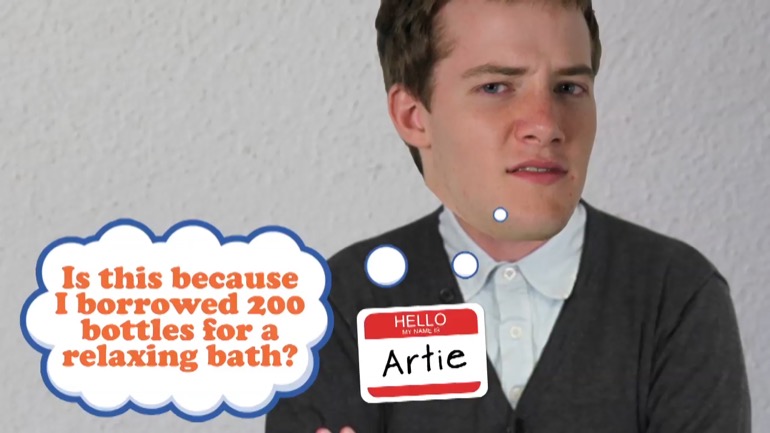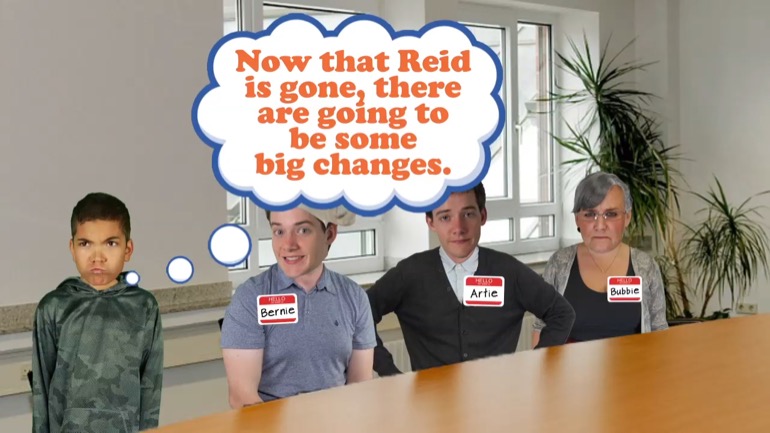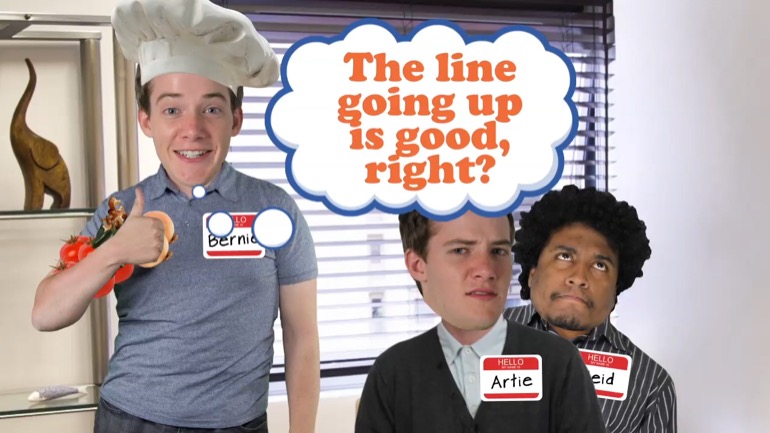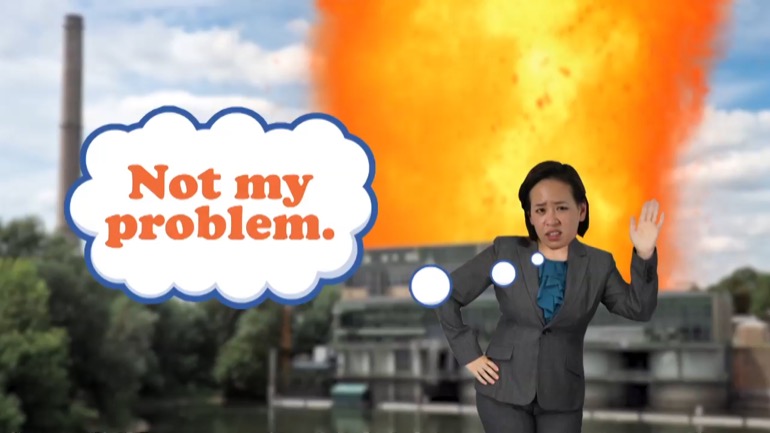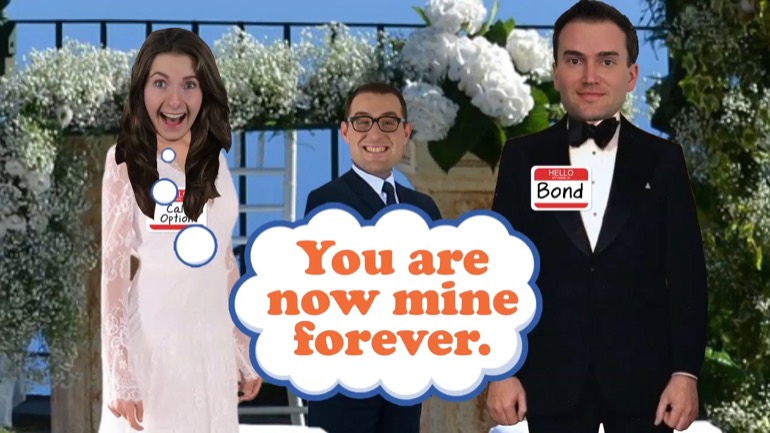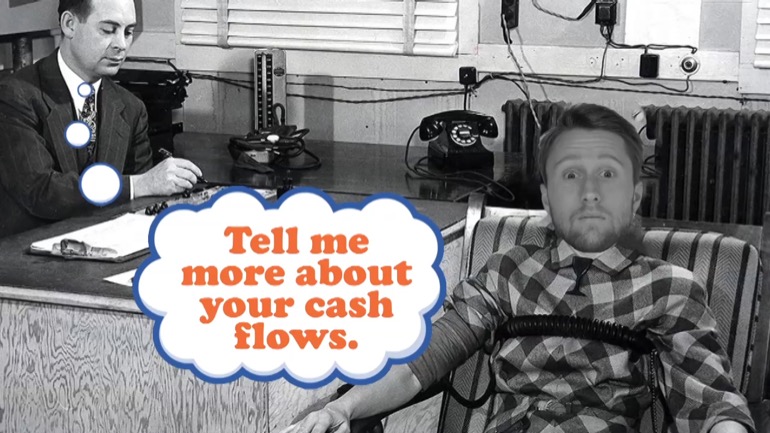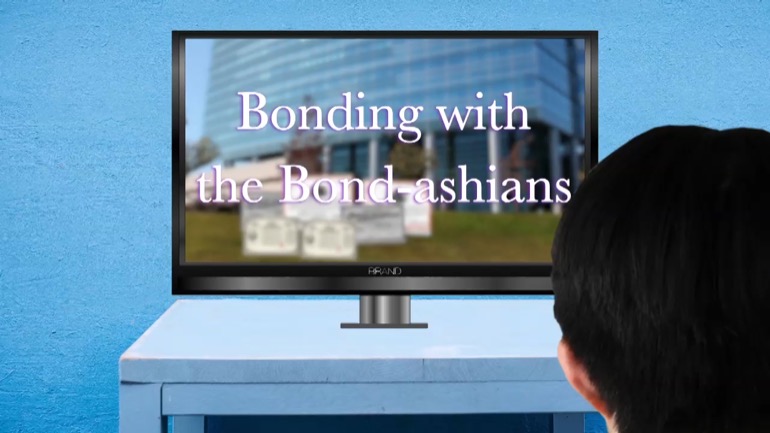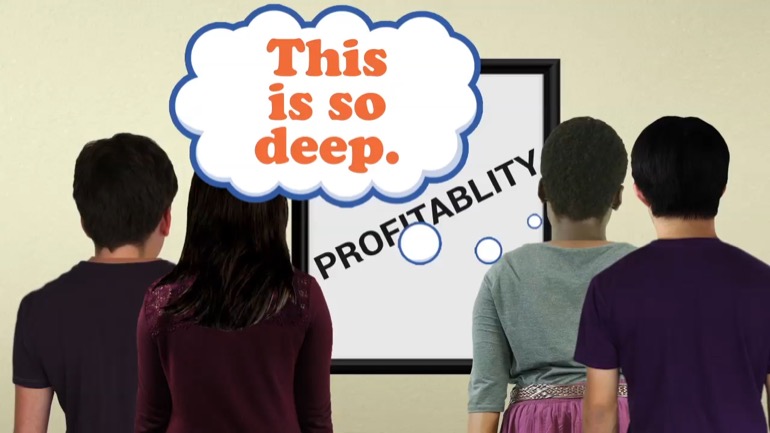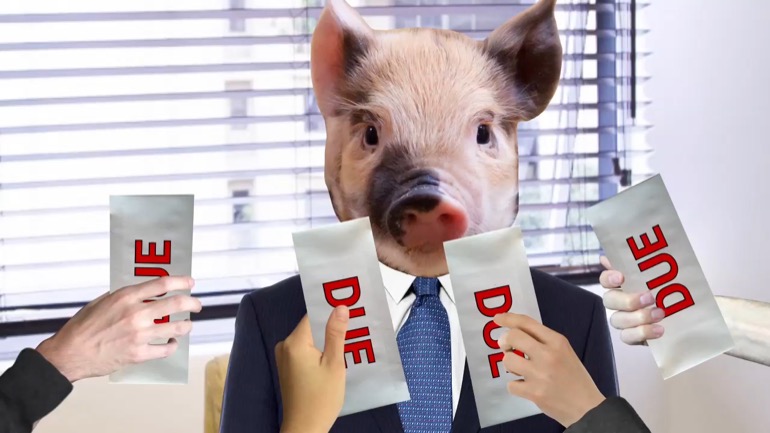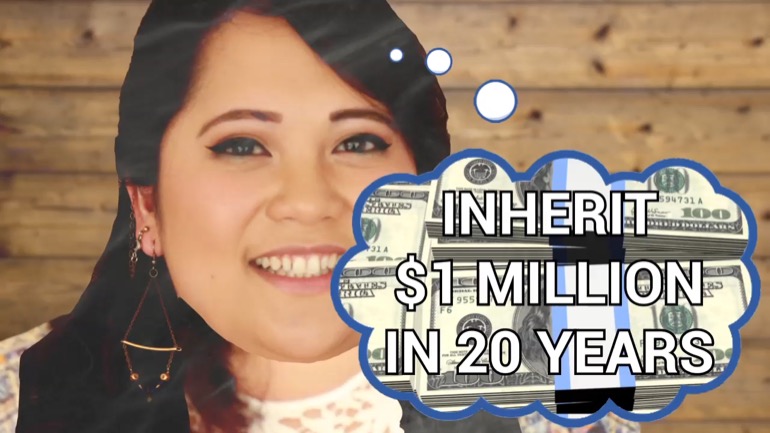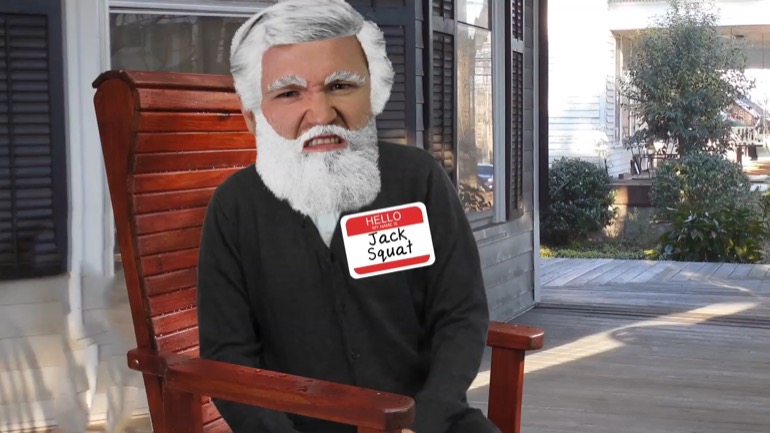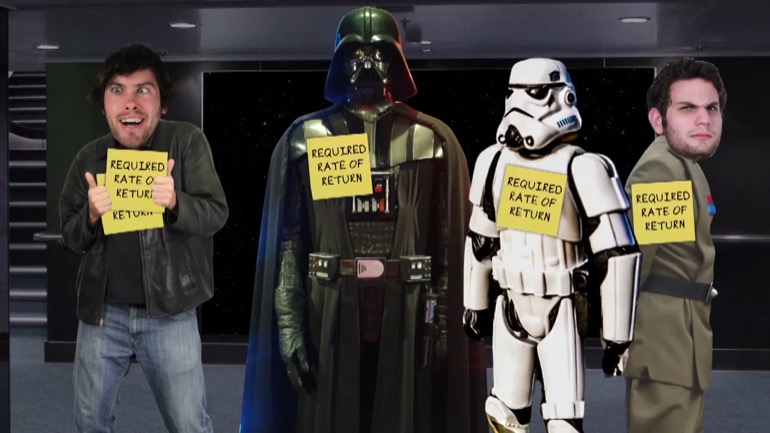ShmoopTube
Where Monty Python meets your 10th grade teacher.
Search Thousands of Shmoop Videos
Principles of Finance Videos 156 videos
Okay, so you want to be a company financial manager. It's basically up to you to make money for the shareholders. It would also be swell if you mad...
How is a company... born? Can it be performed via C-section? Is there a midwife present? Do its parents get in a fight over what to name it? In thi...
What is an income statement, and why do we need it in our lives? Well, let's take a look at an income statement for Year 1 of the Sauce Company, an...
Principles of Finance: Unit 3, Depreciation vs. Amortization 30 Views
Share It!
Description:
Depreciation is the decline in value of an asset over time, while amortization is the process of assigning costs or revenues over time. Appreciation is... what you feel for Shmoop.
Transcript
- 00:00
principles of finance. a la shmoop. depreciation versus amortization. ok
- 00:08
people two words. depreciation and amortization. sing it with me. [definitions]
- 00:13
alright well they're kissing cousins and both reflect the
- 00:17
same notion. things wear out -like my vocal cords .they must be replaced. not my
- 00:23
vocal cords. thank you alright key idea here people. depreciation is for tangible
Full Transcript
- 00:28
things- i.e. things you can touch. like a tractor smelting factory. yeah things
- 00:33
gonna wear out. amortization is for intangible things like patents and
- 00:38
contracted for distribution relationships and FCC licenses. and here
- 00:44
we're gonna talk about a broadcast license- which is intangible right? or
- 00:49
amortize away its value. okay the big question that unites them is when and
- 00:54
well really at what rate right when are we gonna execute these things. well
- 00:57
there's a little story to help illustrate. and we're rounding dates and
- 01:01
times to keep the math as easily digestible as possible. in the 1980s cap
- 01:11
cities owned what is today the ABC television network now owned by Disney. [abc logo]
- 01:17
in those days the law was such that the FCC would grant broadcast licenses for
- 01:23
periods of time .a network would apply to renew that license, and as long as they
- 01:29
quote did right unquote by the public, ie
- 01:32
broadcast hurricane warnings aggressively air public service messages,
- 01:37
against drunk driving and sponsored charitable picnics with mucky-mucks, well
- 01:41
then their licenses generally got renewed. the law changed a few times
- 01:45
along the way allowing for ownership concentration to increase, and that is [judge bangs gavel]
- 01:49
they allowed one station to buy another. since a given target acquisitions
- 01:54
broadcast license was a huge part of their total value in an acquisition well
- 01:59
that licenses remaining duration had to be amortized away. well you can imagine
- 02:04
that in a portfolio of a dozen station acquisitions there ended up being a ton
- 02:10
of broadcast license amortization fact that had to be
- 02:14
amortized away. while some stations had only two years left on their license so
- 02:19
they were a small line item in the acquisition others had like 17 years [broadcast license pictured]
- 02:23
left and others had a dozen or more. all
- 02:26
right well the result cap cities had a lot of
- 02:28
quote false unquote expenses. that is in a given quarter if they had a hundred
- 02:33
million dollars of revenue and fifty million dollars of expenses that were in
- 02:36
cash they'd have booked attribution of another forty million dollars of
- 02:40
amortization of quote costs unquote that had to be run through the income
- 02:45
statement meaning those costs were amortizing down the license. so instead of showing
- 02:49
that they actually earned a dollar seventy a share in cash, while their real
- 02:55
income statement earnings showed like only a dime in earnings. and Wall Street [cap cities income statement shown]
- 02:59
hated this. the street had just come off a terrible bear market in the 70s and
- 03:04
investors were in no mood to pay much more than 15 times real earnings for a
- 03:09
stock no matter what the earnings quality looked like. well cap city's
- 03:13
thought this was just lunacy because on a free cash flow basis while they traded
- 03:18
at about six times cash earnings. and that's for ABC, which was at the time
- 03:23
one of the premier media properties in the entire free world. and maybe the
- 03:27
unfree world we're not sure what licenses go for in China. so the company
- 03:31
was the first to really buy back its own stock. basically giving the middle finger
- 03:36
to Wall Street. and oh by the way there was one investor who totally got the [middle finger shown to wall street stock traders]
- 03:41
stupidity of the accounting rules behind cap cities you've probably heard of him
- 03:45
yeah he became their largest shareholder.
Related Videos
GED Social Studies 1.1 Civics and Government
What is bankruptcy? Deadbeats who can't pay their bills declare bankruptcy. Either they borrowed too much money, or the business fell apart. They t...
What's a dividend? At will, the board of directors can pay a dividend on common stock. Usually, that payout is some percentage less than 100 of ear...
How are risk and reward related? Take more risk, expect more reward. A lottery ticket might be worth a billion dollars, but if the odds are one in...





